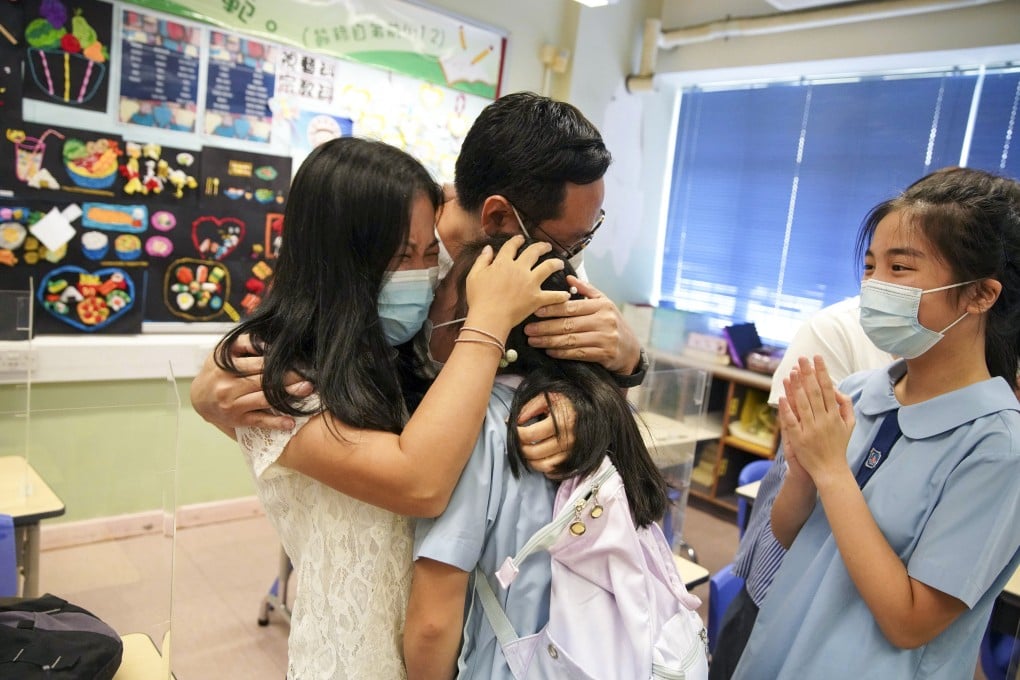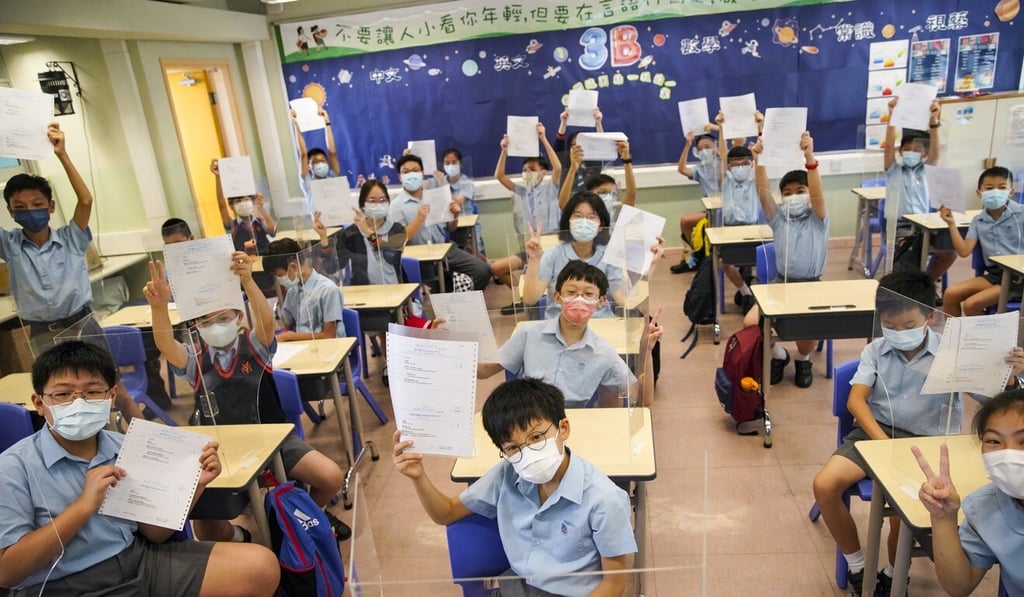Percentage of pupils getting into one of their top-list secondary schools hits 5-year high in Hong Kong
- Tears of joy for some as students learn of placements; Education Bureau says 92 per cent of primary school pupils were able to continue studies at one of their leading choices
- Principals say high rate of emigration, which has eased competition for spots, partly the reason but also warn some schools with have surfeit of places

The Education Bureau on Monday said 52,055 eligible Primary Six children joined the secondary school placements for the 2021-22 school year, down slightly from its initial estimate in December last year of 53,250 pupils.
Pupils were being allocated to local secondary schools in two stages. The first batch were allocated via discretionary placement based on factors such as academic performance, and those results were released in April. The rest had to take part in the computer-based central allocation.

The 92 per cent of 12-year-olds who had been allocated one of their top three choices is up from last year’s 90 per cent, while 81 per cent received their top pick.
This year’s satisfaction rate was the highest since 2017, when 90 per cent of the students were allocated to the schools they chose.